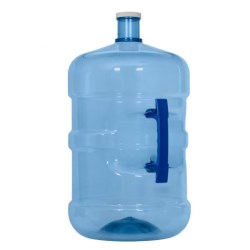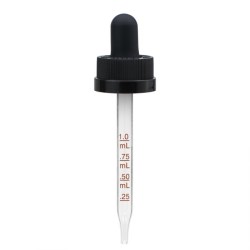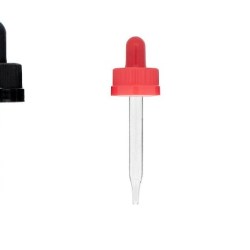Public
Dempsey International Packaging
Dempsey International Packaging Videos
Raptor Packaging Catalog
Raptor Packaging Locations
Raptor Packaging News
If this is your company, CONTACT US to activate Packbase™ software to build your portal.


1. Technical Capabilities in the Rigid Plastics Components Market
One of the most critical attributes that you can look for in a supplier (manufacturer or distributor) is the ability to provide accurate and dependable technical support.
Most anyone can sell a product but few provide the technical expertise that comes with being a qualified supplier. Here are a few key attributes to look for when selecting what distributor to buy from.
Do they:
- Have employees with experience technical experience and skills?
- Have the information data base, drawings, resin specs, etc?
- Have a defined qualification process?
- Have a reputation and customer recommendations as a quality supplier?
What is their:
- Supply channel for components?
- A combination of domestic and international supply is preferred to give a broad breath of products and to also supplement domestic supply during high demand periods of time.
- Foreign supply of dispensing devices, pumps, sprayers, etc is critical as many of these components have moved to off shore sources.
- Have they done the engineering work to insure proper fit and function of components sourced from various manufacturers?
- Have design capabilities?
- Established base supply sources?
- Do they have long standing relationships and history with suppliers?
- What value do they bring to their supply partners? In the distribution market the most effective distributors work hand in hand with their suppliers in managing the customer base.
- Open, honest and transparent are key words to describe actions
- Provide value throughout the supply chain including to the customer and the supplier
- A team based approach to encourage success for everyone.
- Ethics – one of the key factors in selecting a distributor
- Are the communications concise and clear?
- Do they share bad news as fast as good news and when bad news hits do you get the whole story or just fragments? Things go wrong from time to time. How a company handles them is a key indicator to their base ethics.
- Working capital to support the business
- Does your distributor have good credit with their supply partners?
- What is their credit approval process? A financially strong distributor will be diligent in the credit approval process
- Do they reinvest in the business and their customers?
- Custom molds, equipment support with suppliers, people resources
- Expand product lines and offerings
Your chosen distributor should act and feel like an extension of your company. They should work on your behalf with your supply needs, goals and objectives as their number one priority. In return you should expect them to make a fair return and trust that they are working on your behalf as a true business partner.
2. Knowledge of CPG Supply Chain Management
Are you protecting yourself and aligning with business partners that understand your business and the challenges you face?
Having a secure supply chain is one of the most important things a business can have.
Good suppliers take the time to learn about your business. They invest in developing and delivering value-driven solutions and they don’t take chances or make promises that can’t be kept. If you are forced to make compromises to your business to compensate for a partner’s inadequacies perhaps it’s time to think about getting a new partner.
3. Strong Working Capital Position
Does your supplier have a strong working capital position?
If this does not concern you it should! Supply chain dynamics are changing quickly, and your professed industry expert may not be able to save you.
Let’s consider three current market dynamics that could shut your business down while you are on the “stay in place” order.
- Because of COVID-19, there has been a dramatic shift from food service to retail sales, given the closing of restaurants and social distancing. What does this mean for my current supply of packaging materials? The current market infrastructure is built around a healthy mix of 50/50. This shift puts stress on supply because manufacturing assets are not always easily adapted to producing both, so lead times jump considerably.
- The world has finally woken up to the fact that clean and orderly are more than household rules. The current craze to protect ourselves, our families, our employees, and friends from COVID-19 now means we must wash and sanitize ourselves, our work environment, our homes, and everything around us. Hand sanitizer will be the new Chapstick of our generation. This has slammed demand for bottles, closures, and any packaging material associated with hand sanitizer, further filling the existing assets in the supply chain and forcing long lead times.
- The last dynamic at play is that over the last two decades, the explosion of Private Equity into packaging manufacturing and distribution has severely reduced inventory levels in the name of smart working capital management. Most manufacturers today produce to order. The Mega Distributors set incentives and goals for their sales and operations teams to reduce inventory levels to 6-12 turns per year. This quiet, unforeseen move leaves very little margin for error when a situation like COVID-19 emerges.
What’s the point in highlighting the somewhat obvious?
Smart companies make sure that their supply chain partners do not have weak links. Do they have an “ownership” structure and agenda that continually puts your company at risk of losing supply or running out of inventory? Do you really have visibility and a plan to manage through a crisis? Do they have a plan to protect you in the event of a world Pandemic? (You probably now have the answer.) Do you have contracts in place to stop suppliers from shifting production to higher market driven products that leave you without sales and profits?
We will lose many businesses given the situation with COVID-19. It really is a crisis. We all know the adage that “what does not kill you makes you stronger”. I like to think it’s better stated, “What does not kill you makes you smarter”.
It is a good time to re-assess your packaging supply chain and partnerships.
Did the distributors have measures in place to protect you and your business after they reaped large profits for many years? Did they put you—the customer—first and make sure they had enough inventory in place to keep you in business?
It all comes down to their priorities on working capital. It is simply asset management. Smart supply chain partners know the real assets are our customers; not squeezing working capital to inflate Wall Street earning returns.
Choose your partner wisely, it may cost you more than you ever imagined.
4. Supplier Relationships and Credit Worthiness
What gives you the advantage in a crisis?
Probably not leverage, because the harder you push the less results you get. What gets you down the road is your relationships and the ability to be nimble and quickly adapt to the market changes.
Your supplier relationships can be the defining factor to keep your supply chain from crumbling.
Companies that know the value of people have strong relationships internally and externally that they can lean on in a time of crisis. People take care of people and investing in doing the right thing as a distributor pays big dividends, especially in a crisis.
In this moment of crisis, we are seeing a breakdown that the traditional supply chain is not equipped to handle. Over recent years, consolidation and working capital pressures have resulted in longer, better utilization of manufacturing assets, while distributors on the other side have reduced safety stock and inventory for customers. This leaves little room for error or in this case a real crisis.
The result is many customers who thought they were paying a premium for distributors to manage their supplier relationships will soon find out that they have been busy managing their bottom line. With lead-time cascading into months instead of week, many long-time distributor customers will find their business in jeopardy, not from the COVID-19 but from an overly narrow supply chain that is unable to react to market changes.
5. Import/Export Legal Expertise
The world of international business in not for the faint of heart.
Doing business internationally requires experience and expertise. LinkedIn makes it look like you could simply pick up, text the person on the other side of the world, and boom! you have product flowing.
What many companies fail to realize is the peril that could come their way without proper legal expertise. We are fortunate here in the USA because we have basic laws like the Uniformed Commercial Code that protect our business and govern disputes. This is not the case in many countries around the world. Treaties and trade deals further complicate jurisdiction and precedence. For instance, the new trade deal that replaces NAFTA allows the United States federal government to enforce trade disputes versus the old system which was up to companies or individuals to foot the bill.
The devil is in the details, a phrase we have all heard, and when your company imports products it is accountable to both the exporting and importing countries. Taxes and tariffs apply differently to goods and services and if you are not in compliance, you will get a very nice bill for your lack of compliance. These things can seem small, but they could cost you dearly in the end.
For most of us, the concept of wiring money to someone or a company you don’t know and have never seen is a scary proposition. Many foreign suppliers require payment up front or at the time of shipment giving you little or no control. The perils dig even deeper when you receive product that does not meet acceptable quality standards. Buyer beware, at this point you have little or no recourse to return or replace the product. Even worse, you could have failures in the market with your customer causing a recall or injuring someone.
Charging on to the international landscape of supply chain management without experience and good legal advisors is akin to going on a hike through the Amazon naked! We just don’t recommend it.
Authored by:
George W. Dempsey Jr, CEO of Raptor Packaging & Dempsey International Packaging
George is a leading expert on Asian and Latin American Packaging Supply Chain dynamics. His expertise spans 22 years of supply chain and business development in foreign markets, including multiple board level positions. He is a graduate of Northern Illinois School of Business and holds multiple degrees including an Executive MBA.
Todd Caron, Vice President of Business Development at Raptor Packaging & Dempsey International Packaging
Todd’s exceptional, proven background in the packaging industry has given him in-depth insight to the packaging world, setting him apart as a thought leader and packaging expert. As VP of Business Development he handles sales and market development for the West Coast and Northwest regions of the United States.
Bill Negrini, Vice President of Business Development at Raptor Packaging & Dempsey International Packaging
Bill’s extensive experience in the packaging market includes expertise in the health care, personal care, and food market segments with exposure to many others. As VP of Business Development he handles sales and market development for the Midwest and Eastern regions of the United States.


.jpg)

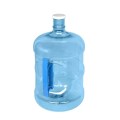

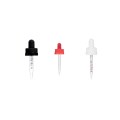



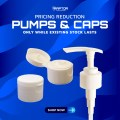
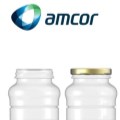








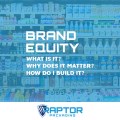



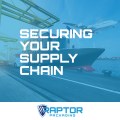
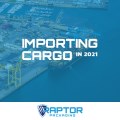









.jpg)

